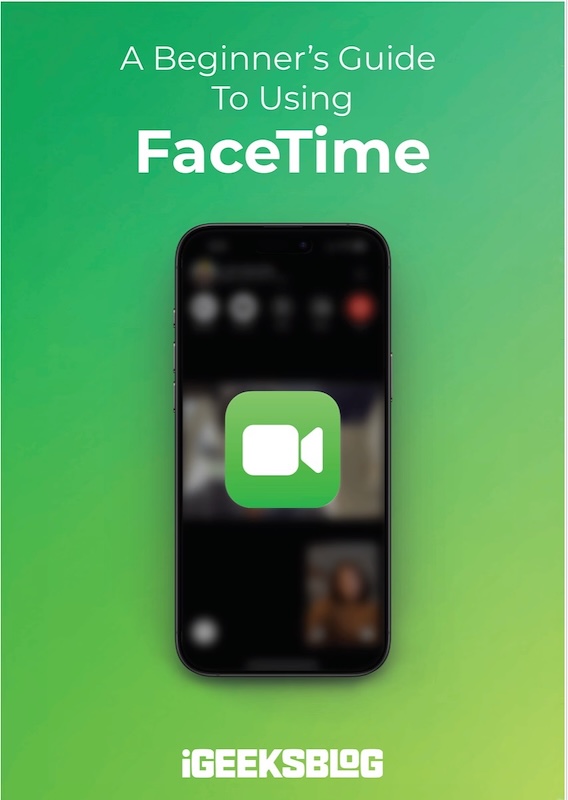
FaceTime Like a Pro
Get our exclusive Ultimate FaceTime Guide 📚 — absolutely FREE when you sign up for our newsletter below.

FaceTime Like a Pro
Get our exclusive Ultimate FaceTime Guide 📚 — absolutely FREE when you sign up for our newsletter below.
The iPhone 17 finally brings ProMotion and Center Stage to standard models. Here’s how it stacks up against iPhone 16 and whether you should upgrade.
Apple has finally unveiled the much-anticipated iPhone 17 lineup, which succeeds last year’s iPhone 16 series. Like previous launch events, the new entry, iPhone Air, and the Pro models grabbed the spotlight, but the standard iPhone 17 isn’t playing second fiddle this year. While the design language feels familiar, several under-the-hood upgrades might tempt iPhone 16 owners to switch. However, the bigger question is whether iPhone 16 owners should give in to this temptation.
This post breaks down the key differences and helps you decide if upgrading makes sense.
| Feature | iPhone 17 | iPhone 16 |
|---|---|---|
| Display | 6.3-inch Super Retina XDR, ProMotion 120Hz | 6.1-inch Super Retina XDR, 60Hz |
| Processor | A19 | A18 |
| Rear Camera | 48MP Dual Fusion, 48MP Fusion Ultra Wide | 48MP Fusion main, 12MP ultrawide |
| Front Camera | 18MP Center Stage Camera | 12MP |
| Storage Options | 256GB, 512GB | 128GB, 256GB, 512GB |
| Battery | Up to 30 hours (video playback) | Up to 22 hours (video playback) |
| Charging | 25W MagSafe and Qi2, 40W Wired | 25W MagSafe and Qi2, 20W Wired |
| Weight | 6.24 ounces (177 grams) | 6.00 ounces (170 grams) |
| Colorways | Black, Lavender, Mist Blue, Sage, White | Ultramarine, Teal, Pink, Black, White |
| Price at Launch | $799 | $799 |

The iPhone 17, in terms of design language, is entirely identical to the iPhone 16, which isn’t surprising for Apple. Both devices have the same rounded-edge aesthetic and feature the same vertically aligned rear camera module. However, iPhone 17 feels slightly lighter (however, it’s not) and comes in fresh new color options. Moreover, the materials feel more refined, though the form factor remains nearly identical.
Those craving a major design refresh will find it only in the iPhone 17 Pro models, which sport slimmer bezels and a sleeker titanium build. For standard users, however, the changes are subtle rather than revolutionary.
This is the most noticeable difference between the two. With iPhone 17, Apple has finally added the ProMotion display (120Hz refresh rate) to its standard iPhones, plus it’s now 6.3 inches. On the other hand, iPhone 16 sports the same OLED display with a standard 60Hz refresh rate, which has been the norm since many previous iPhones. This much-anticipated upgrade makes scrolling, animations, and gaming buttery smooth.
Besides this, the iPhone 17 also offers higher peak brightness, 3000 nits, than the iPhone 16, which is useful for outdoor use. For many users, this single feature may be the most compelling reason to upgrade.
At first glance, the rear camera system of the iPhone 17 and iPhone 16 appears the same. But the iPhone 17 introduces Apple’s new Dual Fusion Camera system, which fuses data from both sensors to deliver sharper details, improved dynamic range, and richer low-light shots.

Another major addition is the 12MP front-facing camera with Center Stage support. Previously limited to iPads and Macs, Center Stage uses machine learning to automatically keep you in frame during video calls, even if you move around. It’s a game-changer for FaceTime, Zoom, and other video conferencing apps, and a clear step up from the static selfie camera on the iPhone 16.
Powering the iPhone 17 is the new A19 chip, which promises better speed and efficiency compared to the iPhone 16’s A18 chip. While both processors offer snappier performance in everyday tasks, the A19 ensures longer support and better performance in demanding apps and games.
Since Apple is known for limiting features on iPhones with older chipsets, the iPhone 17 can be considered a future-proof bet.
The iPhone 17 houses a slightly larger battery and benefits from the energy efficiency of the A19 chip. This gives the iPhone 17 a slight edge in screen-on time over the iPhone 16. Moreover, Apple has also bumped up MagSafe charging speeds.
At launch, the iPhone 17 costs the same as the launch price of the iPhone 16, i.e, $799. But since the iPhone 16 is now discounted, it is a tempting option for those who don’t care about the new features. However, the inclusion of a ProMotion display, an upgraded set of cameras, and a more powerful processor does make the iPhone 17 feel closer to a Pro model.
Simply put, the iPhone 16 is still a strong value, but the iPhone 17 delivers Pro-like features at a lower price point.

If you’re using an iPhone 16, you still have a capable device that will last for years. Apple’s software updates ensure that your phone won’t feel outdated anytime soon, and for most users, it continues to offer excellent performance, reliable cameras, and solid battery life.
But if the jump to a 120Hz ProMotion display, better low-light photography, faster performance, 256GB base storage, and longer software support matter to you, the iPhone 17 is a meaningful step forward.
In the end, the iPhone 17 is not a must-have for every iPhone 16 user. But if you want a device that feels modern, future-proof, and packed with more polished everyday features, the iPhone 17 is worth the jump.
Read More